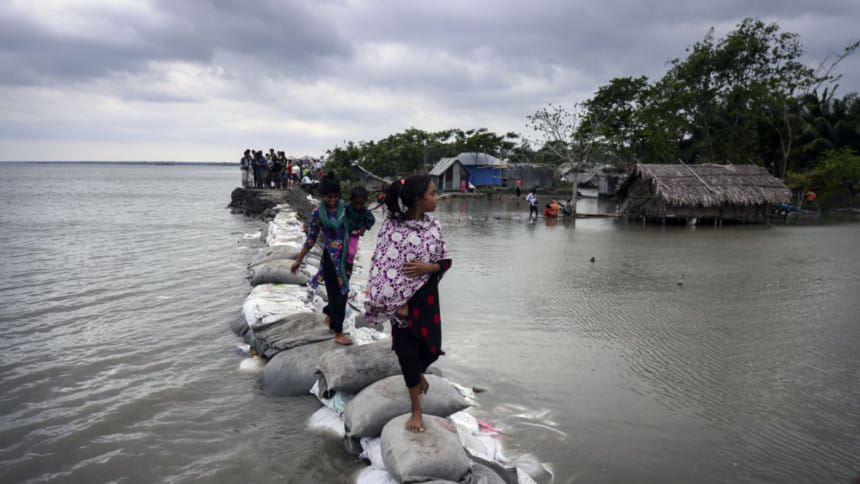Job scarcity, climate change driving up internal migration

Around 71 percent of internal migrant workers in Bangladesh migrate due to livelihood challenges or a lack of job opportunities, while 69 percent are driven by lower wages, according to a new survey revealed yesterday.
The survey, which covered 2,505 individuals across 10 districts (five source and five destination), was conducted by People's Courage International and the Association for Community Development (ACD).
The findings were presented at a panel discussion, titled "Coping with Climate: How Extreme Weather is Already Impacting Internal Migrants", held at a private hotel in Dhaka.
Anika Azhar, representing People's Courage International and Sharmin Sabrina of ACD shared the study's results.
According to the research, 48 percent of internal migrants prioritise better healthcare when choosing a destination, with 85 percent seeking higher wages. The study also found that migration driven by debt repayment exacerbates migrants' financial challenges.
Climate change impacts 55 percent of migrants from source districts, with 13 percent of those at their destination also affected.
To cope with extreme weather, over 30 percent of migrants from source areas are using their savings. The study said that migration between districts is increasing due to rising temperatures, floods, and heavy rainfall.
Moreover, 80 percent of migrants at their destination face wage loss, with 41 percent experiencing wage cuts and 20 percent losing their jobs entirely.
In response to these challenges, the study calls for the identification of vulnerable communities and the creation of targeted action plans, including social protection programmes to mitigate the effects of extreme weather.
Experts at the event emphasised the need for further academic and practical dialogue on the intersection of climate change and migration. They called for more collaboration among experts to address the growing challenges posed by climate-related migration and urged proactive measures to support affected communities.
Subrata Paul, Project Coordinator of ACD; Prof Chowdhury Sarwar Jahan from Rajshahi University; Md Anwar Hossain of the NGO Affairs Bureau, and representatives from Winrock International, IOM, and the Ministry of Social Welfare were also present among others.

 For all latest news, follow The Daily Star's Google News channel.
For all latest news, follow The Daily Star's Google News channel. 



Comments